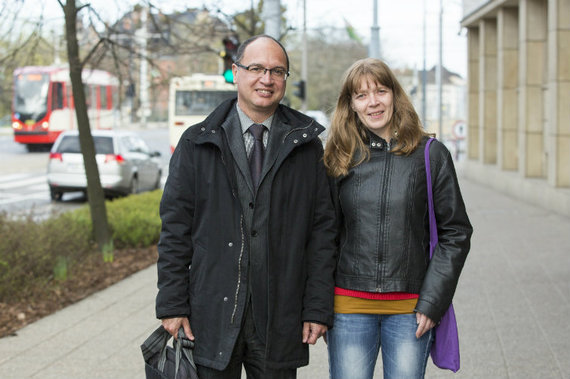The immigration is a great challenge for Europe, a challenge we are aware of in Gdansk, too. Currently we are looking for our own model of integrating immigrants into our society. Engaging residents into discussing the issue and sharing best practices with our partners from other countries are an important part of our work. A few days ago Gdansk was visited by EUROCITIES experts on immigration, which was an excellent opportunity to exchange experience.
The immigration is a great challenge for Europe, a challenge we are aware of in Gdansk, too. Currently we are looking for our own model of integrating immigrants into our society. Engaging residents into discussing the issue and sharing best practices with our partners from other countries are an important part of our work. A few days ago Gdansk was visited by EUROCITIES experts on immigration, which was an excellent opportunity to exchange experience.

Ramón Sanahuja i Vélez and Anja Van den Durpel - EUROCITIES experts visiting Gdansk. Photo: J. Pinkas
For sure Flemish Ghent, represented by Anja Van den Durpel, and Catalonian Barcelona, represented by Ramón Sanahuja i Vélez, are the cities that can share with others their experience on integrating immigrants. A few decades ago both cities had quite similar social structure like Gdansk today, with the case of Ghent being especially interesting from our point of view. The city was mostly homogenous and had no real model of integrating immigrants, when they started to arrive in 60s. Working out a strategy for integration began maybe too late, after the local governments noticed problems, like poor knowledge of local language or culture. As Mrs. Van den Durpel said, at the beginning, immigrants were considered mostly as a support for local labor market and not many bothered to integrate them into society. Therefore, their children, born already in Belgium, have inherited some problems their parents had had.
Today there are not too many foreigners living in Gdansk and, unlike in Western Europe, they mostly come from the former USSR countries. It is possible the numbers will grow in the future, for what we want to be well prepared, regarding the complexity of the issues. I know that many residents of Gdansk are afraid of the unknown, but I also know that our economy will be steadily developing and our labor market, with an unemployment rate below 5%, will be attracting people from the abroad. For example, Gdansk ICT industry has already been in great need for IT professionals and I know that a few talented IT specialists from Ukraine have already moved to Gdansk.
Integrating immigrants can be done in a good or a bad way, and we prefer to choose the first option. The real challenge is to predict the trend and be ready for it - to engage residents, NGOs, institutions, schools to make the process of integrating immigrants beneficial both for them and for Gdansk. To avoid problems before they appear, rather than seek for solutions of them. No less important is a sincere, open dialogue with this group of residents, who may feel afraid of immigration.
Ramón Sanahuja shared very interesting thought during his visit in Gdansk. He said, that being a destination for immigrants is also a prove of a city’s success, as a place to work, do business and live. It is still not very common view in Poland, but certainly worth taking into account. He encouraged us to continue our efforts on the integration model, what we will certainly do.
Source: huffingtonpost.com


